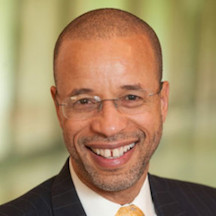 The Christian Theological Seminary in Indianapolis has announced the establishment of a Ph.D. program in African American preaching and sacred rhetoric. It is the first of its kind in the nation, according to seminary officials. The new Ph.D. program will focus on the special role that preaching has in the African American community, viewing it as an art form, a force for social change, and an area overdue for academic study.
The Christian Theological Seminary in Indianapolis has announced the establishment of a Ph.D. program in African American preaching and sacred rhetoric. It is the first of its kind in the nation, according to seminary officials. The new Ph.D. program will focus on the special role that preaching has in the African American community, viewing it as an art form, a force for social change, and an area overdue for academic study.
 Dr. Frank A. Thomas, the Nettie Sweeney and Hugh Th. Miller Professor of Homiletics at the seminary and director of the Academy of Preaching and Celebration, stated that “for people of color, the man or woman in the pulpit is often the heart and face of the community. That is a unique role that carries a unique responsibility, and we want to prepare men and women with both the scholarship and practical understanding of preaching to be worthy of that call.”
Dr. Frank A. Thomas, the Nettie Sweeney and Hugh Th. Miller Professor of Homiletics at the seminary and director of the Academy of Preaching and Celebration, stated that “for people of color, the man or woman in the pulpit is often the heart and face of the community. That is a unique role that carries a unique responsibility, and we want to prepare men and women with both the scholarship and practical understanding of preaching to be worthy of that call.”
The new program will emphasize the training of “practitioner-scholars” rather than developing full-time, tenure-track professors, Dr. Thomas said. It is expected that graduates of the program will continue to engage in scholarship but will also actively participate in ministry.
Dr. Thomas is the author of They Like to Never Quit Praisin’ God: The Role of Celebration in Preaching (Pilgrim Press, 2013) and co-editor of Preaching With Sacred Fire: An Anthology of African American Sermons, 1750 to the Present (W.W. Norton & Co, 2010). He holds a master’s degree in African-Caribbean studies from Northeastern Illinois University, a master’s degree and a doctor of ministry degree from the Chicago Theological Seminary, a doctor of ministry degree from the United Theological Seminary and a Ph.D. in communications and rhetoric from the University of Memphis.
According the latest figures from the U.S. Department of Education, African Americans make up 26 percent of the student body at Christian Theological Seminary.


What are the requirement to enroll in this new Ph.D. program “African American Preaching” in other words, do I need to have my M.Div or can I have a Masters of Theology? And my 2nd question, I live in Chicago, can I take it online, or do I need to come in the classroom? and if so, will it be during the week or weekends?
This is an area of study that I would like to recieve more information on. It appears to me in my 57 years of life that the academic curriculum is ever changing. I notice that the gospel and the word of God has not changed and it is about time that our institutions of higher education got on board with the things that are really important.
Like to get started!
I am interested. I have a MDiv from SBTS. What are the requirements for this program? Is there distance learning, or is it all on campus. Currently, I am in St. Louis, MO.